Abstract
African Americans and other minority populations have not benefited to the same degree as the majority of Americans from the advances in health care in our country. The vestiges of racism have resulted in inequities which exist in training, medical practice, medical decision making, the work environment and biomedical research. Recommendations are made to eliminate racial and ethnic bias in healthcare through monitoring and increasing the number and the distribution of medical trainees proportionate to the diversity of the U.S. population; through improvements in the medical school curriculum to include the impact of race and ethnicity on healthcare outcomes as well as the effect of physicians' attitudes on health; through the inclusion of an adequate number, mix and distribution of health care professionals relative to the diversity of the participants in health plans with due process for patients and physicians; and through increased participation in peer review research funding, training and as subjects in biomedical research directed to improve the quality of healthcare for diverse populations.
Full text
PDF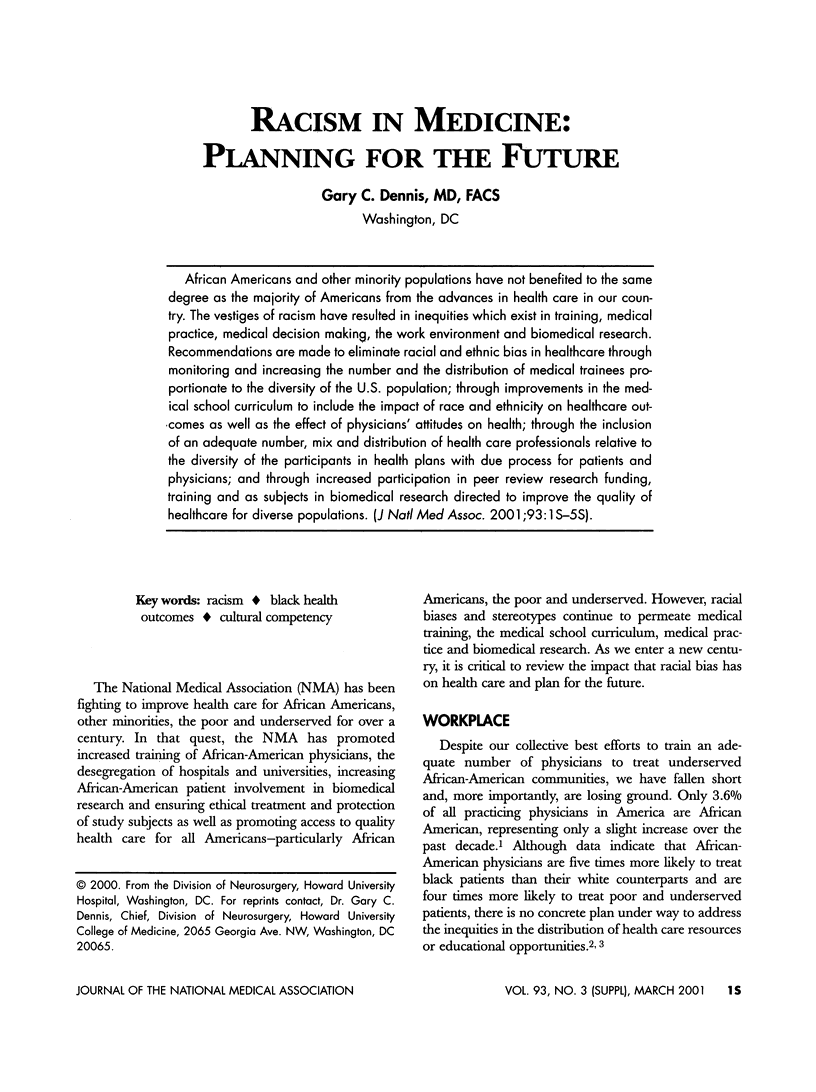
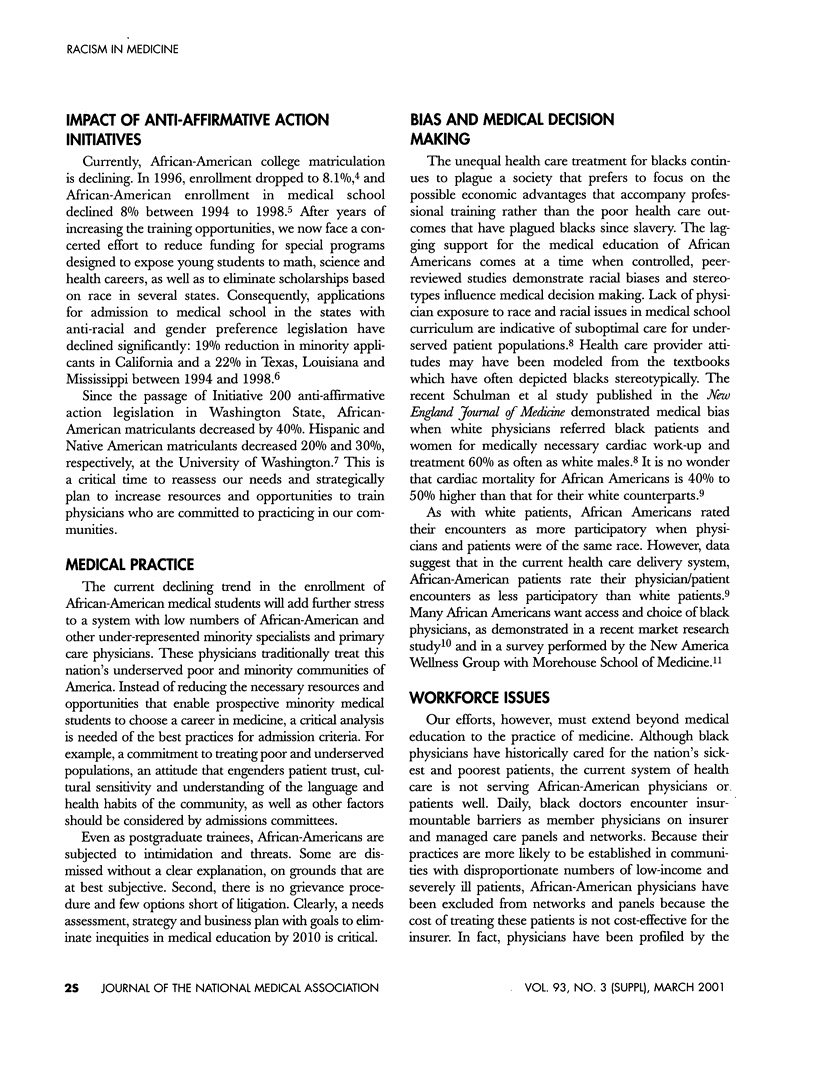
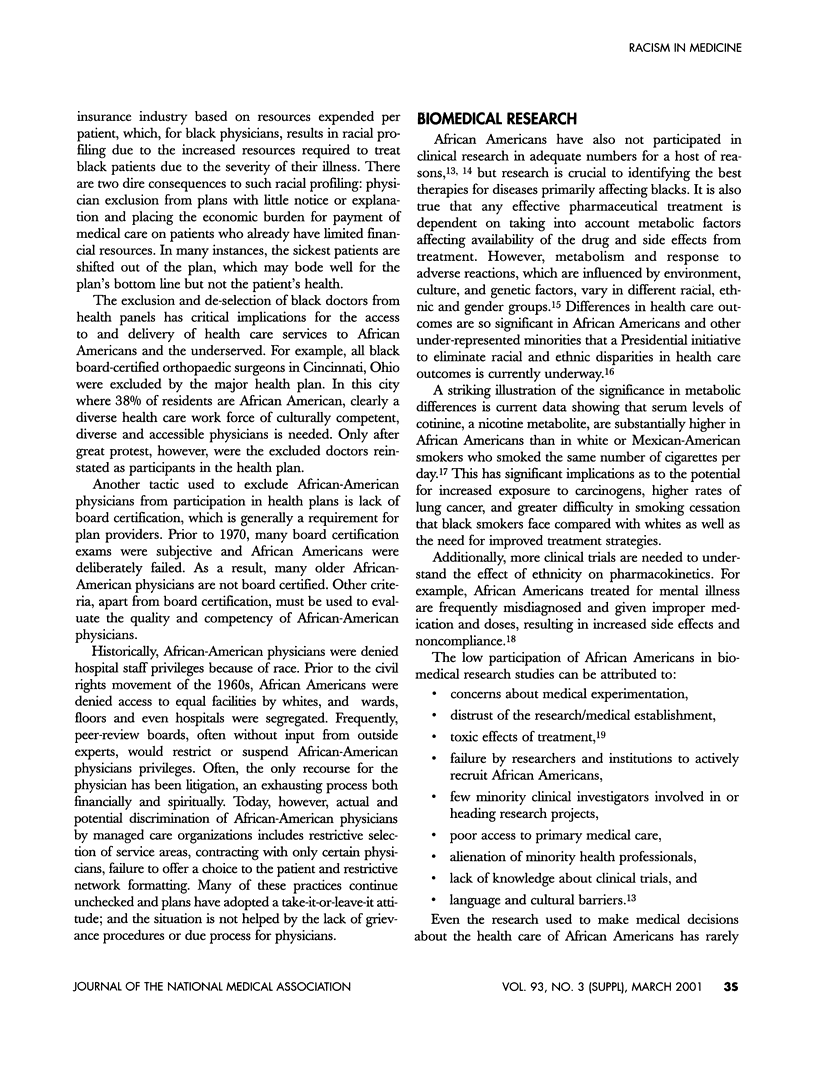
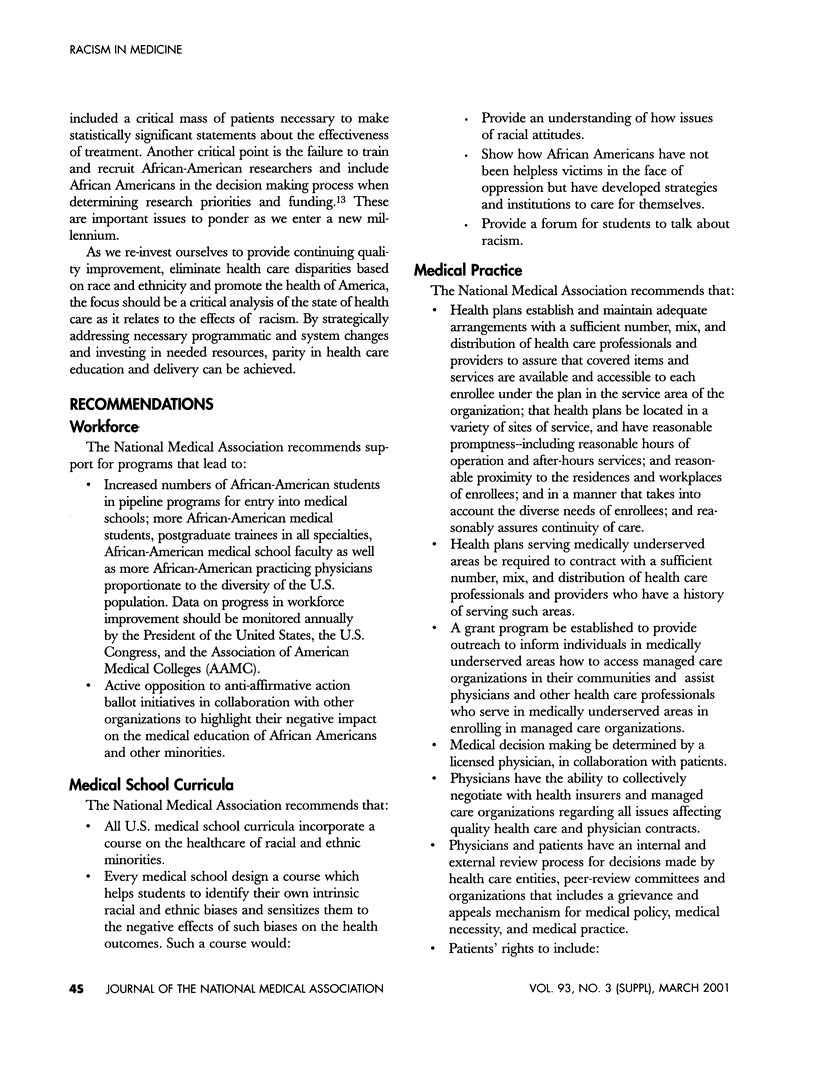
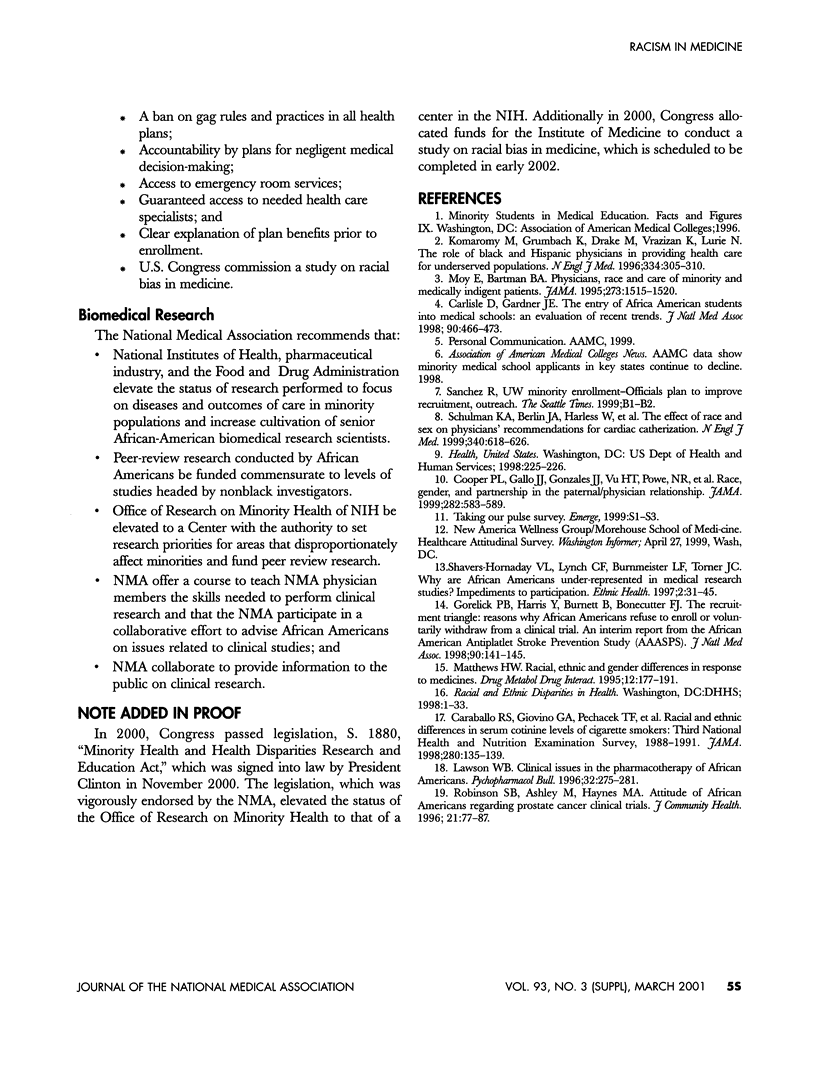
Selected References
These references are in PubMed. This may not be the complete list of references from this article.
- Caraballo R. S., Giovino G. A., Pechacek T. F., Mowery P. D., Richter P. A., Strauss W. J., Sharp D. J., Eriksen M. P., Pirkle J. L., Maurer K. R. Racial and ethnic differences in serum cotinine levels of cigarette smokers: Third National Health and Nutrition Examination Survey, 1988-1991. JAMA. 1998 Jul 8;280(2):135–139. doi: 10.1001/jama.280.2.135. [DOI] [PubMed] [Google Scholar]
- Carlisle D. M., Gardner J. E. The entry of African-American students into US medical schools: an evaluation of recent trends. J Natl Med Assoc. 1998 Aug;90(8):466–473. [PMC free article] [PubMed] [Google Scholar]
- Cooper-Patrick L., Gallo J. J., Gonzales J. J., Vu H. T., Powe N. R., Nelson C., Ford D. E. Race, gender, and partnership in the patient-physician relationship. JAMA. 1999 Aug 11;282(6):583–589. doi: 10.1001/jama.282.6.583. [DOI] [PubMed] [Google Scholar]
- Gorelick P. B., Harris Y., Burnett B., Bonecutter F. J. The recruitment triangle: reasons why African Americans enroll, refuse to enroll, or voluntarily withdraw from a clinical trial. An interim report from the African-American Antiplatelet Stroke Prevention Study (AAASPS). J Natl Med Assoc. 1998 Mar;90(3):141–145. [PMC free article] [PubMed] [Google Scholar]
- Lawson W. B. Clinical issues in the pharmacotherapy of African-Americans. Psychopharmacol Bull. 1996;32(2):275–281. [PubMed] [Google Scholar]
- Moy E., Bartman B. A. Physician race and care of minority and medically indigent patients. JAMA. 1995 May 17;273(19):1515–1520. [PubMed] [Google Scholar]
- Robinson S. B., Ashley M., Haynes M. A. Attitude of African-Americans regarding prostate cancer clinical trials. J Community Health. 1996 Apr;21(2):77–87. doi: 10.1007/BF01682300. [DOI] [PubMed] [Google Scholar]
- Schulman K. A., Berlin J. A., Harless W., Kerner J. F., Sistrunk S., Gersh B. J., Dubé R., Taleghani C. K., Burke J. E., Williams S. The effect of race and sex on physicians' recommendations for cardiac catheterization. N Engl J Med. 1999 Feb 25;340(8):618–626. doi: 10.1056/NEJM199902253400806. [DOI] [PubMed] [Google Scholar]
- Shavers-Hornaday V. L., Lynch C. F., Burmeister L. F., Torner J. C. Why are African Americans under-represented in medical research studies? Impediments to participation. Ethn Health. 1997 Mar-Jun;2(1-2):31–45. doi: 10.1080/13557858.1997.9961813. [DOI] [PubMed] [Google Scholar]


